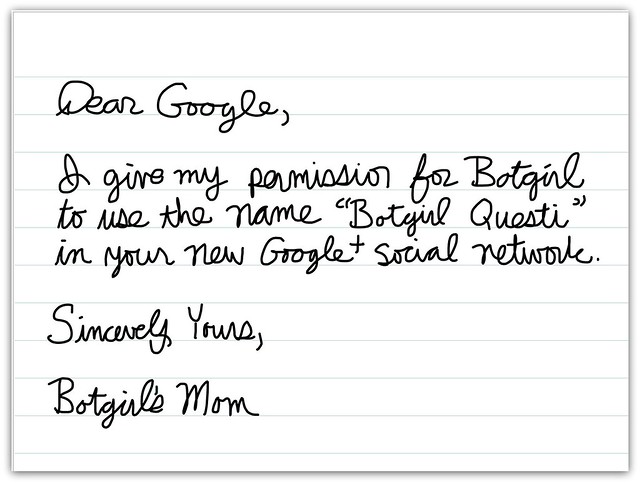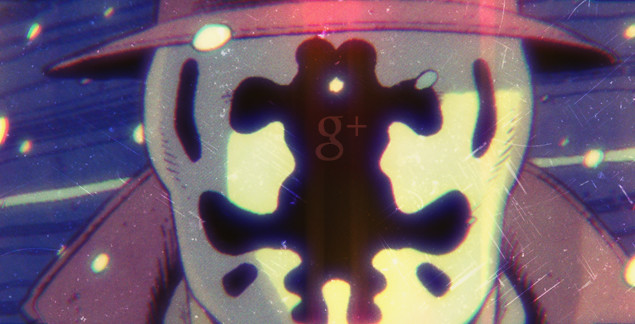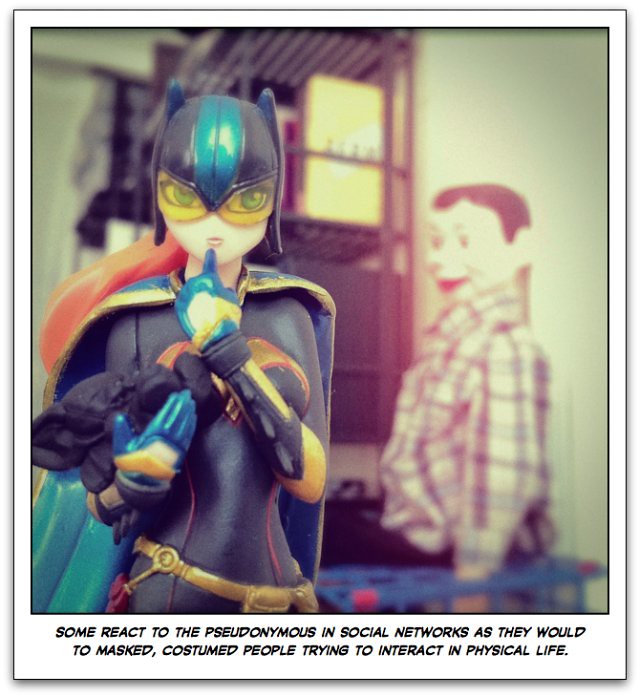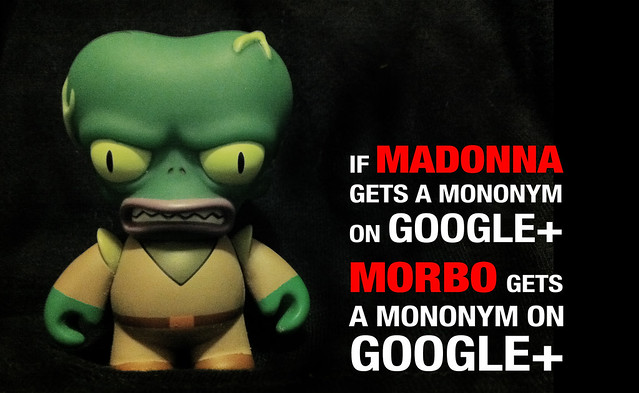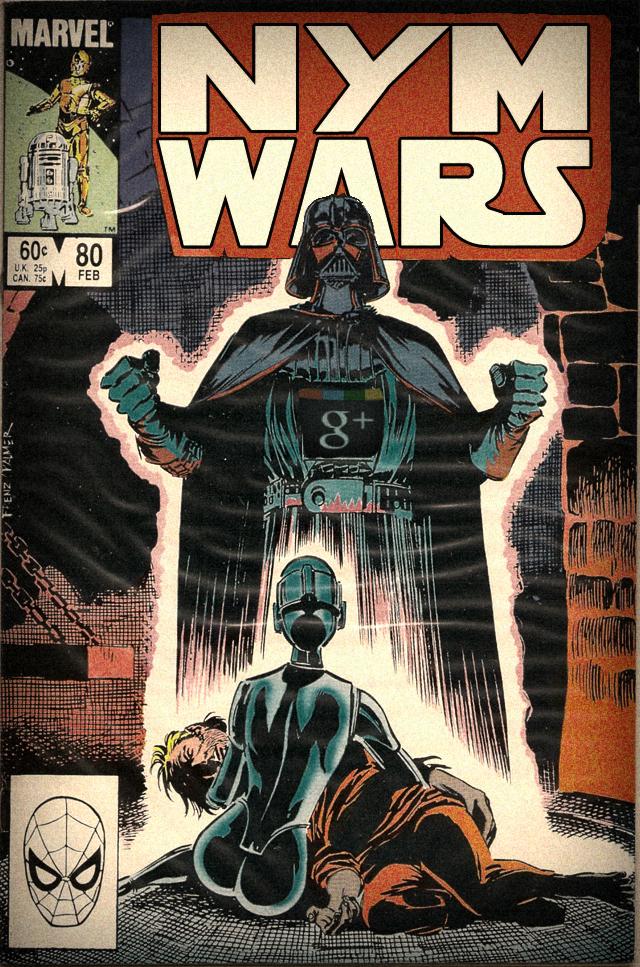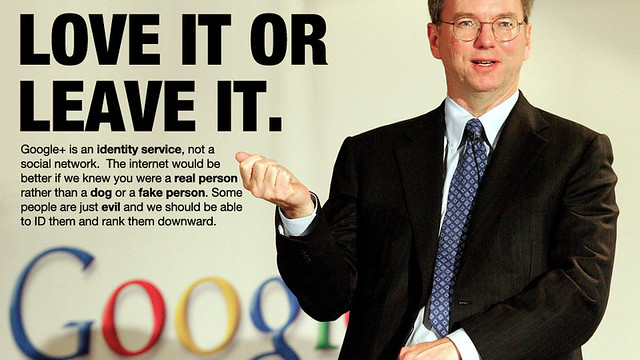Google+ launched it's initial Beta in June 2011 with a strict policy against pseudonymous identity. The initial justification was that it benefited users:
Google Profiles is a product that works best in the identified state. This way you can be certain you’re connecting with the right person, and others will have confidence knowing that there is someone real behind the profile they’re checking out. For this reason, Google Profiles requires you to use the name that you commonly go by in daily life.
Here's how it was explained to me in an imagined interview with a Google representative:
An interview with Google Executive Chairman Eric Scmhidt in August 2011 at the Edinburgh International TV Festival revealed that it's purpose was primarily to establish Google+ as an identity service that depend upon people using their wallet names to to build future products that leverage that information. He said:
It's obvious for people at risk if they use their real names, they shouldn't use G+ . . . The internet would be better if we knew you were a real person rather than a dog or a fake person. Some people are just evil and we should be able to ID them and rank them downward.Based on the Google's official statements, along with those who supported them in comments on Google+, there was an assumption that those using pseudonyms were likely hiding more than their name and that it was dangerous to allow them into the community. Here's was my take at the time, on the underlying attitude:
When each post we make is permanently tattooed on our public record, self-censorship is self-preservation. The Brave New World that Google, the Zuckerbergs and the U.S. Congress are pushing us towards would deliver our complete virtual history to anyone typing our name into a search engine:
- Employers, Insurance agencies, load examiners and private investigators
- Children, parents, neighbors and ex-spouses
- Stalkers, griefers and others who may seek to do harm
- And god forbid if you're ever going to run for public office
A real name policy ironically works against people "being real" in public forums by making it too risky to bare our hearts and souls. A real name environment puts a damper on communication that is counter to the dominant culture or far enough outside of the mainstream to have potentially negative ramifications on employment or acceptance in one's physical world community.+They softened the stance in January 2012, limiting pseudonyms to previously established identities that could be proven through references in a news articles or a link to a blog with a "meaningful following." I even tried using a letter of reference from my mom:
Then yesterday, seemingly out of the blue, Google reversed its policy in a post on Google+:
When we launched Google+ over three years ago, we had a lot of restrictions on what name you could use on your profile. This helped create a community made up of real people, but it also excluded a number of people who wanted to be part of it without using their real names.The policy change probably reflects the recent reshuffling of Google management. Or maybe it's simply that they realized the misguided policy contributed to Google+'s failure to meet their initial expectations for social network dominance. In any case, I'm very happy that the policy is now reversed.
Over the years, as Google+ grew and its community became established, we steadily opened up this policy, from allowing +Page owners to use any name of their choosing to letting YouTube users bring their usernames into Google+. Today, we are taking the last step: there are no more restrictions on what name you can use.
We know you've been calling for this change for a while. We know that our names policy has been unclear, and this has led to some unnecessarily difficult experiences for some of our users. For this we apologize, and we hope that today's change is a step toward making Google+ the welcoming and inclusive place that we want it to be. Thank you for expressing your opinions so passionately, and thanks for continuing to make Google+ the thoughtful community that it is.
That said, I'm not very optimistic about Facebook making a similar change. They still outlaw pseudonyms and will go on witch hunts from time to time, suspending the accounts of suspected Nyms. Ironically, Facebook's stringent policy on identity ends up causing the type of abuse people were worried about on Google+. The inability to establish openly pseudonymous identities has helped create the "catfish"phenomenon where users hijack other people's images to establish online identities to hook up with unsuspecting people looking for internet relationships. When pseudonyms are outlawed, only outlaws have pseudonyms.
You can find all of my articles, videos and comics related to the nymwars here.


